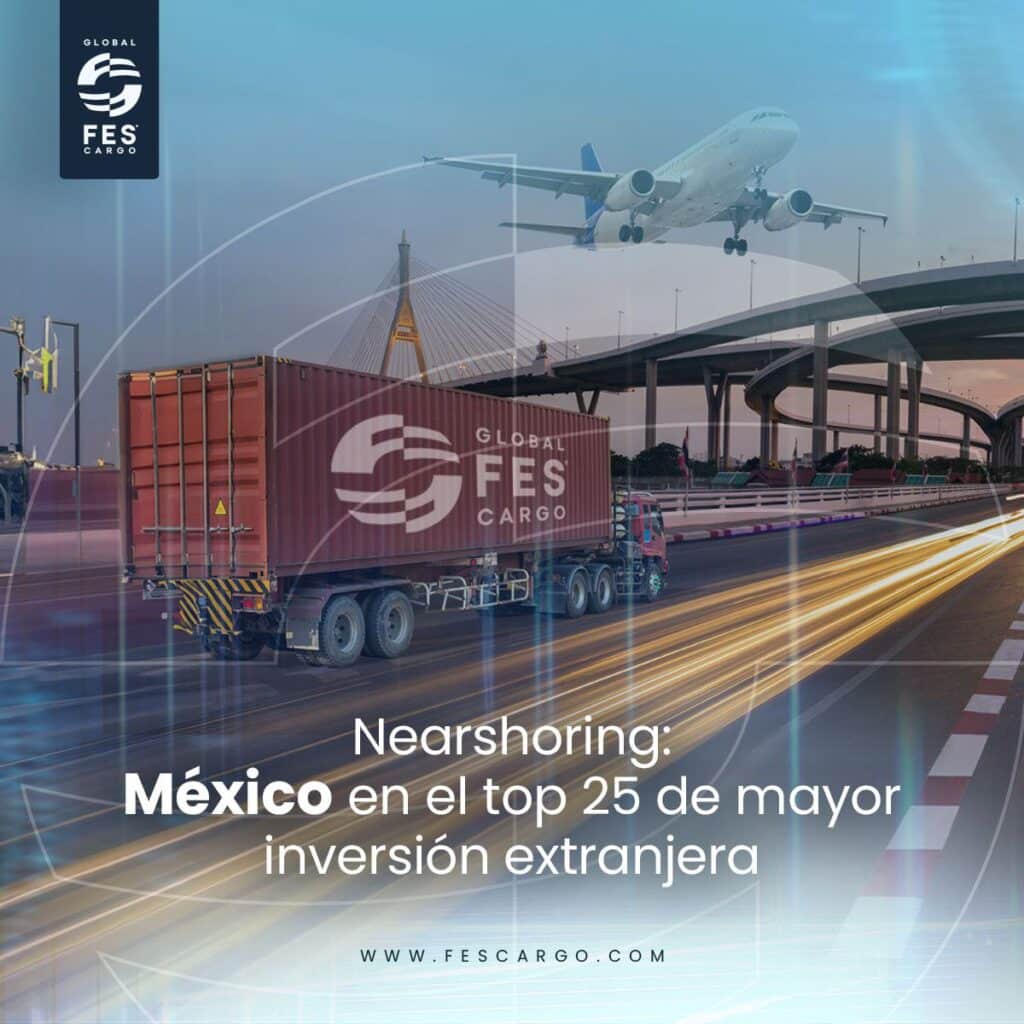Mexico has once again stood out on the international stage as an attractive destination for foreign direct investment. After four years outside the ranking, the country has regained its position among the top 25 recipients of foreign investment, ranking number 21.
This return to the top 25 is largely due to the phenomenon of nearshoring, a process whereby companies move their manufacturing operations closer to their target market, in this case, Mexico.
Kearney’s CEO, Omar Troncoso, points out that this return to the ranking is due to the migration of capital to Mexico for the construction of plants, factories, and production lines in the manufacturing sector. This movement is driven by several factors, including disruptions in supply chains, geopolitical tensions, and the trade war between the United States and China.
The relocation of companies is also being motivated by resource shortages in other countries, as well as geopolitical tensions and imbalances in the raw materials market. Mexico has become a preferred destination for these investments, especially in the manufacturing sector, attracting a significant portion of the foreign investment that previously flowed to Asia and other locations.
Investors believe that Mexico will continue to be a central point for reshoring to the United States, as the country receives approximately 2.7% of foreign direct investment as a proportion of GDP. This figure, although lower than that of other countries such as Brazil, is still significant and reflects investors’ confidence in Mexico’s economic potential.
Benefits of Nearshoring in Mexico
Nearshoring in Mexico brings a series of benefits for both foreign companies and the Mexican economy. Some of these benefits include:
Proximity to the US market: Mexico is geographically close to the United States, facilitating access to the largest market. Competitive costs: Despite recent increases in labor costs, Mexico remains competitive in terms of labor and production costs compared to other countries. Trade agreements: Mexico has an extensive network of trade agreements, facilitating trade with other countries and providing access to markets. Skilled workforce: Mexico has a young and growing workforce, as well as a solid base of skilled workers in key sectors such as manufacturing and technology.
At FES Cargo, we are committed to supporting companies in their international logistics operations. Our maritime, land, and air transport services, customs clearance, and storage are designed to help companies maximize their efficiency and success in a constantly changing commercial environment.
Interested in learning more about how nearshoring is impacting the Mexican economy? Follow us on our social networks and subscribe to our mailing list to receive more relevant content!
